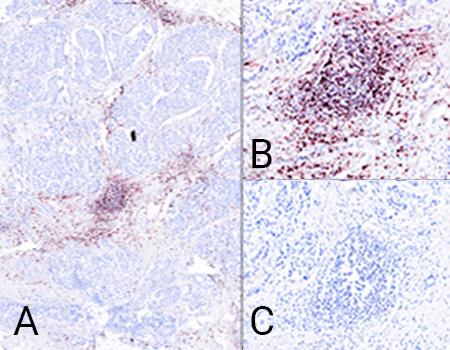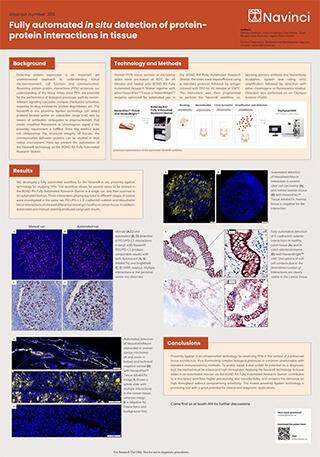Precise Visualization of PD1/PD-L1 Interactions Using Naveni®Kits.
The Naveni® BOND RX research stainer products offer a comprehensive solution for studying PD1/PD-L1 interactions within tissue microenvironment with both chromogenic and fluorescent PD1/PD-L1 offerings. With precise visualization capabilities, researchers can gain deeper insights into the dynamics of immune checkpoint pathways, facilitating the development of targeted immunotherapies for cancer treatment.








